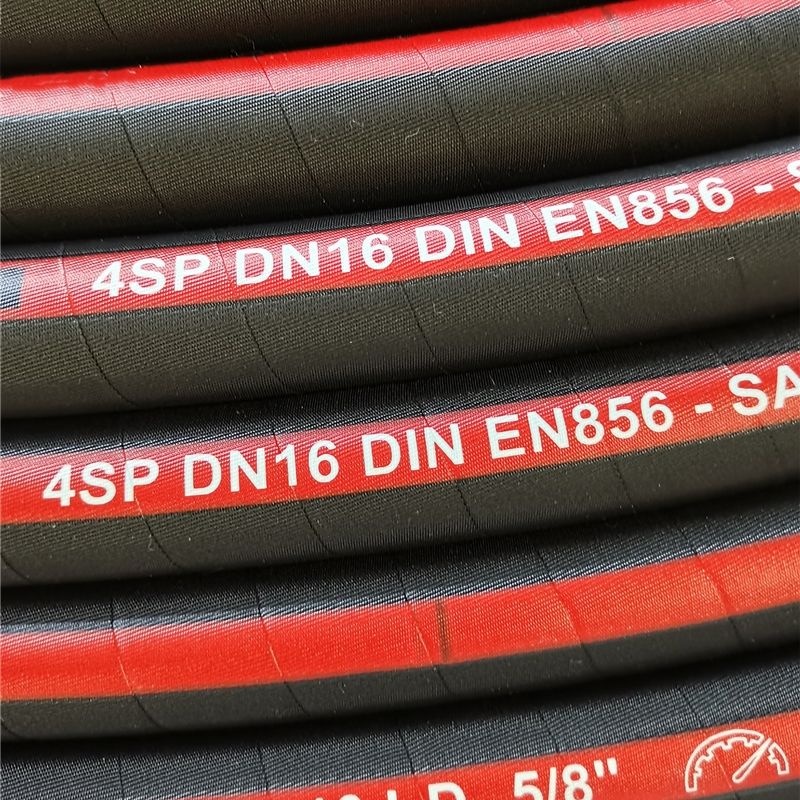Nov . 11, 2024 02:45 Back to list
High Temperature Resistant PTFE Hose Certified for Export with CE Compliance
CE Certification for High Temperature Resistant PTFE Hose Exporters
In today's global market, the demand for high-quality industrial materials is ever-increasing. Among these, high temperature resistant PTFE (Polytetrafluoroethylene) hoses are gaining significant attention due to their remarkable performance in extreme conditions. Exporters of these specialized hoses must ensure compliance with various international standards, including CE certification, to compete effectively and assert their credibility in the market.
Understanding PTFE Hoses
PTFE hoses are known for their exceptional chemical resistance, high thermal stability, and low friction properties. They are engineered to withstand extreme temperatures, making them ideal for industries such as pharmaceuticals, food processing, chemical manufacturing, and aerospace. The ability to maintain performance under high temperatures up to 260°C (500°F) without degrading or losing flexibility makes PTFE hoses a preferred choice for many applications.
Importance of CE Certification
CE marking is a crucial requirement for products being sold in the European Economic Area (EEA). It signifies that the product meets EU safety, health, and environmental protection standards. For exporters of high temperature resistant PTFE hoses, obtaining CE certification is not only a legal necessity but also a testament to the quality and safety of their products. It serves as a passport for market access across Europe, as products without CE marking may be barred from sale.
The Certification Process
The process to obtain CE certification for PTFE hoses involves several key steps
1. Product Assessment Initially, the manufacturer or exporter must conduct a comprehensive assessment of the PTFE hose, evaluating its properties and performance against the relevant EU directives and standards.
2. Documentation A technical file must be compiled, containing detailed information about the product, including design specifications, test results, and quality control measures. This documentation is crucial for demonstrating compliance with EU regulations.
3. Testing The hoses may need to undergo rigorous testing by a notified body, particularly if they are classified under specific directives such as the Pressure Equipment Directive (PED). Testing ensures that the hoses can withstand the specified temperatures and pressures, validating their performance claims.
ce certification high temperature resistant ptfe hose exporter

4. Declaration of Conformity Once testing is completed and the product is confirmed to meet all requirements, the exporter must prepare a Declaration of Conformity. This document declares that the product complies with all relevant European legislation.
5. CE Marking Finally, the CE mark is affixed to the product, indicating compliance. This mark is not merely a label; it represents the commitment of the manufacturer or exporter to safety and quality.
Market Advantages of CE Certification
Achieving CE certification offers several advantages for exporters of high temperature resistant PTFE hoses
- Increased Credibility CE certification enhances the credibility of the exporter in the eyes of potential customers. It signals adherence to rigorous safety and quality standards, fostering trust.
- Market Access As mentioned earlier, CE marking is essential for selling products in the EEA. Without it, exporters may lose significant market opportunities.
- Competitive Edge In a crowded marketplace, having CE certification sets an exporter apart from competitors who may not have the same level of compliance or understanding of regulations.
- Reduced Liability By adhering to strict safety standards, exporters can minimize potential liabilities associated with non-compliance, accidents, or product failures.
Conclusion
The global marketplace for high temperature resistant PTFE hoses is expanding rapidly, and exporters must rise to the challenge of meeting international standards. CE certification is not merely a regulatory hurdle; it is a strategic asset that can greatly enhance marketability and consumer trust. By ensuring that their products meet the stringent requirements for CE marking, exporters can position themselves as leaders in quality and compliance, paving the way for growth and success in the competitive industrial landscape.
-
1 1 2 Inch Hydraulic Flexible Hose - Durable, Reliable, High-Pressure Solutions
NewsJul.07,2025
-
High-Quality 1 2 Rubber Hose - Durable, Flexible Hydraulic Solutions
NewsJul.07,2025
-
Discover SAE Hydraulic Hose Types - High Quality & Durable Hoses from Leading Factory Supplier
NewsJul.06,2025
-
High Pressure Wire Hydraulic Rubber Hose Supplier Durable & Reliable 1SN Hose Solutions
NewsJul.06,2025
-
High-Quality Rubber Air Hose 3/8" – Durable, Flexible & Leak-Proof for Industrial Use
NewsJul.05,2025
-
High Quality Rubber Air Hose 3/8 - Durable 3/8 Rubber Air Hose with Air Brake Hose Fittings
NewsJul.05,2025
